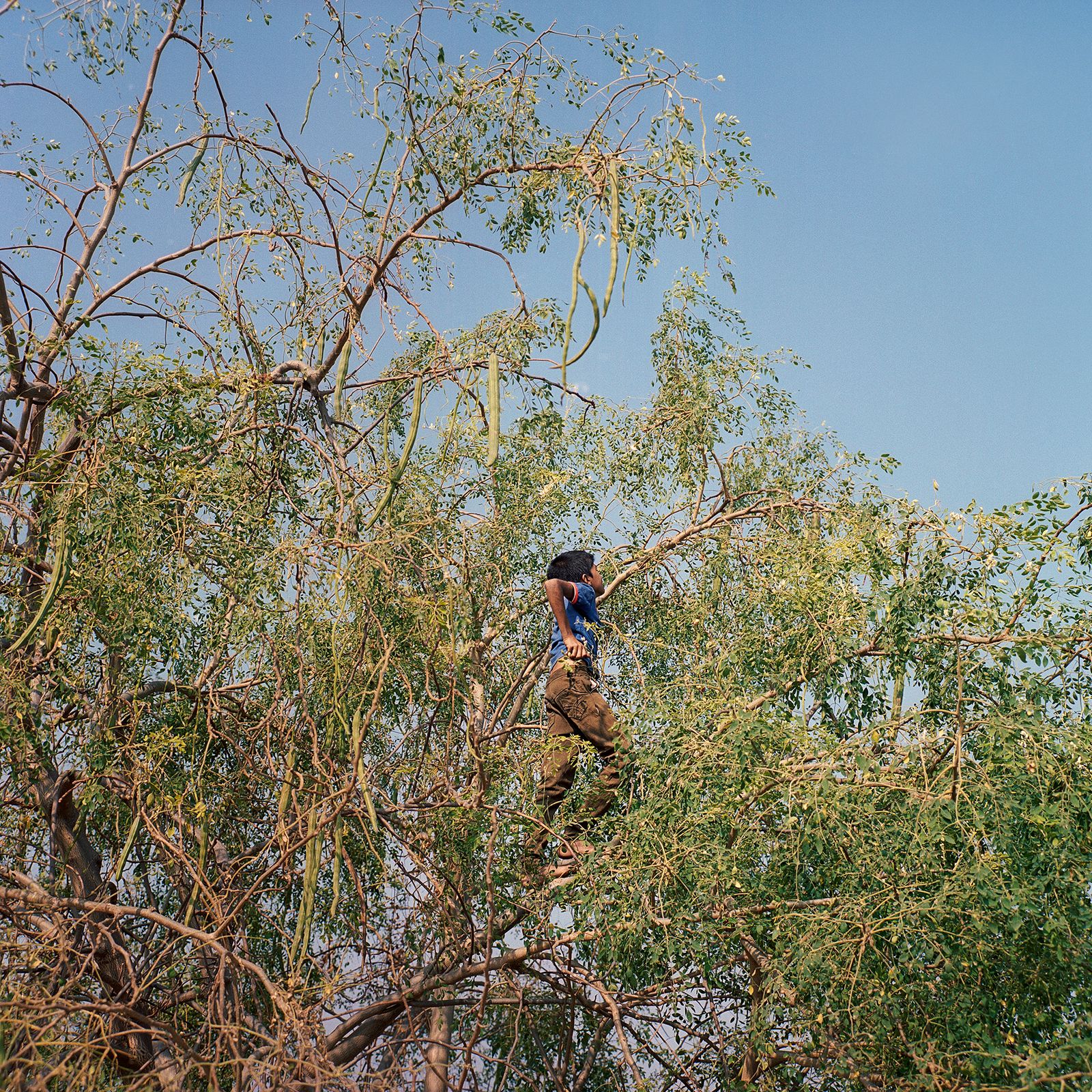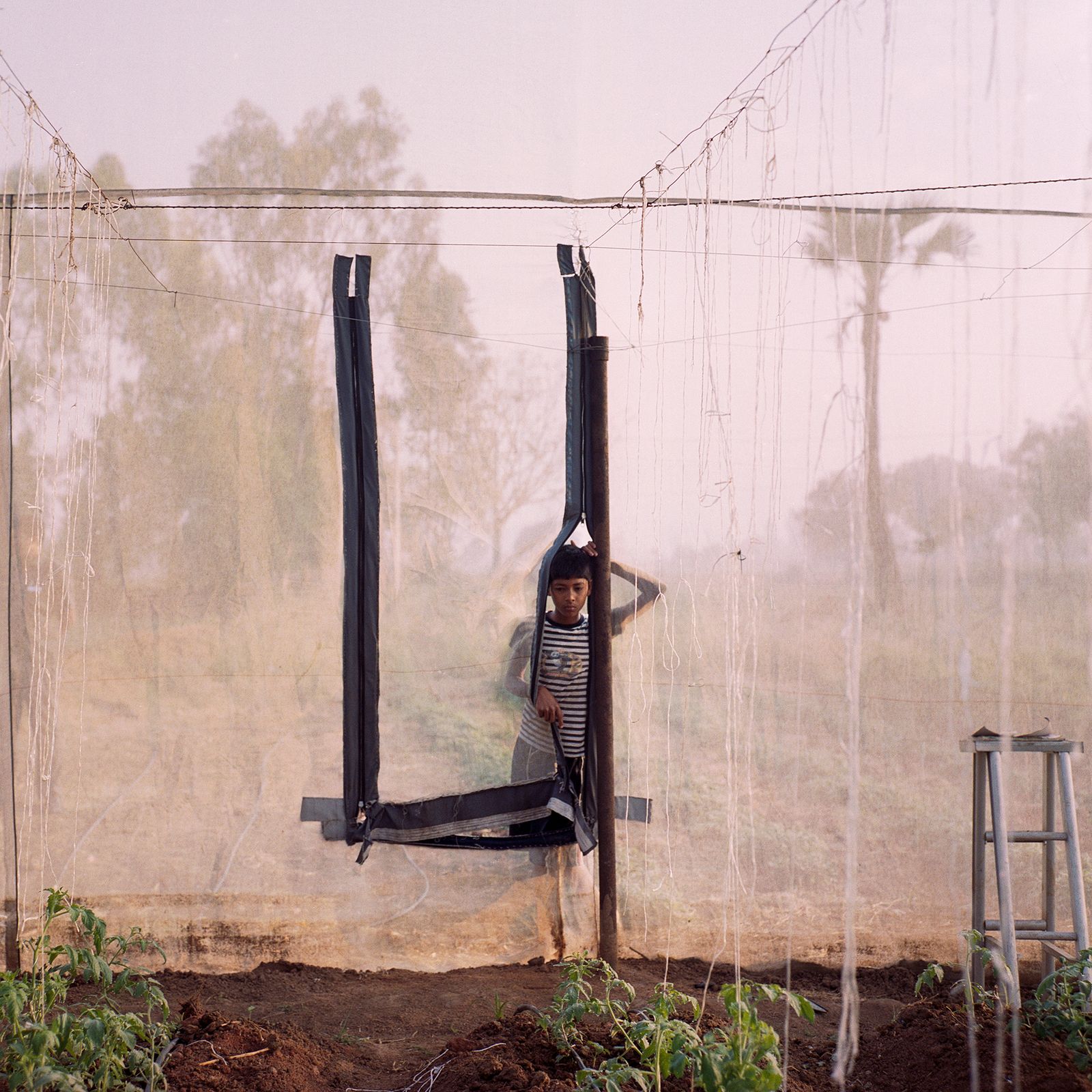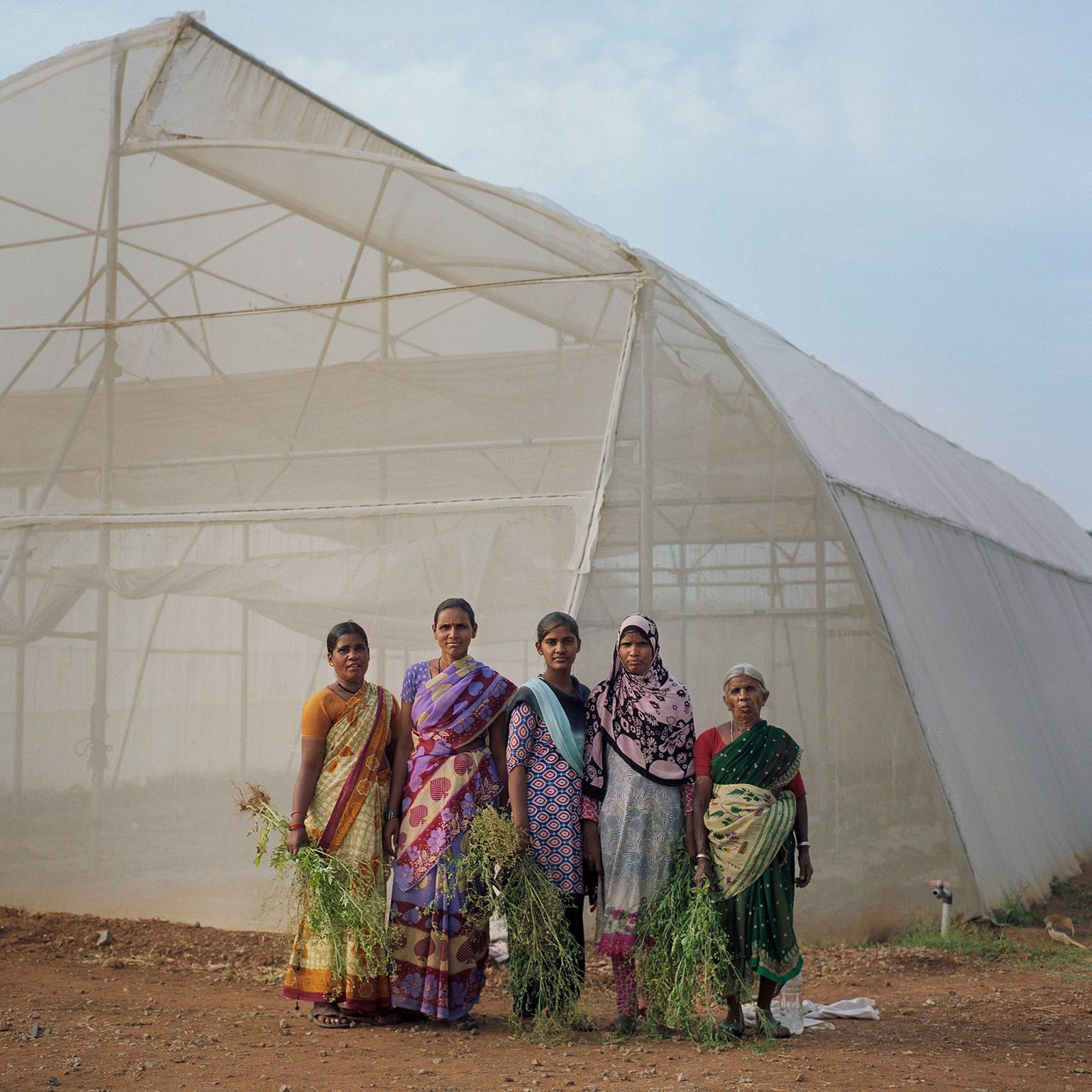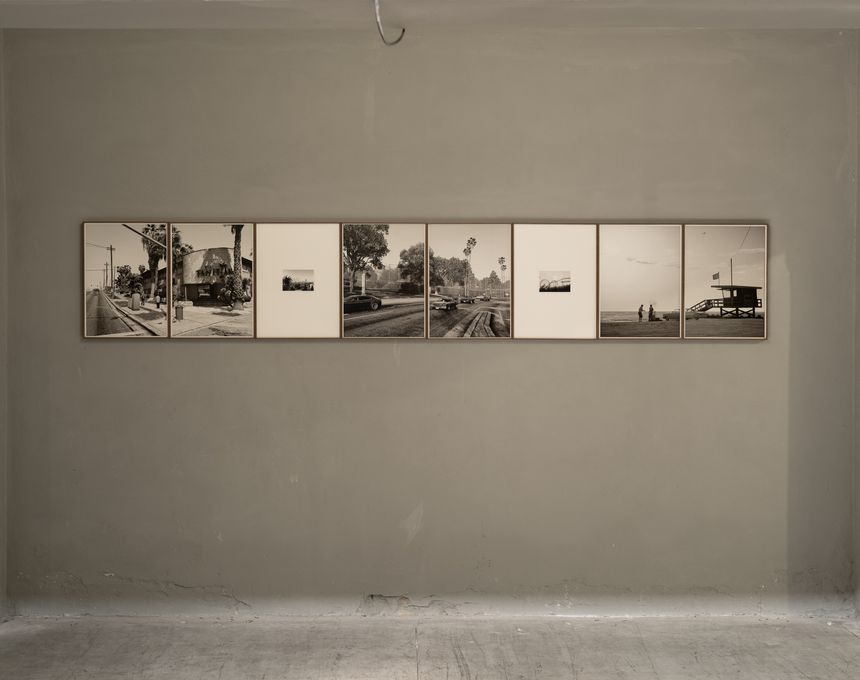The Alternative Greenhouses Revolutionising Indian Agriculture
-
Published7 Dec 2018
-
Author
Sara Hylton travelled to south-central India to document how farmers are benefiting from innovative greenhouses that offer economic security at a time when climate change, and unpredictable weather patterns, threaten their survival.
Sara Hylton travelled to south-central India to document how farmers are benefiting from innovative greenhouses that offer economic security at a time when climate change, and unpredictable weather patterns, threaten their survival.
© Sara Hylton for National Geographic. Yadav Bhavanth's son Santosh, 11, picks moringa drumsticks. Moringa has been called a superfood by some; it's a staple in the Indian diet, used in curry dishes, sambar sauce, and to add spice. Other parts of the tree are used for medicinal purposes.
In the spring of 2018, Sara Hylton, who has been based in and out of India for the past eight years, was assigned by National Geographic to shoot a story that writer Janice Cantieri had been investigating for a few months. A local organisation, Kheyti, had started to provide farmers from the south-central Indian state of Telangana with training and logistical support from the seed to the market, as well as offering loans for them to buy small alternative greenhouses.
“I had read a lot about the farming issue all across the country, which seems to worsen due to climate change. Farmers have no governmental support though they have an increasing amount of debts to deal with, and there are a lot of suicides among farmers. I went to cover the story knowing all of that and I was quite critical. I thought, ‘what will a few small greenhouses do about climate change?’”, Hylton says.
© Sara Hylton for National Geographic. Vikram Bhavanth, 13, peers through the family's greenhouse. Kheyti collaborated with engineering students at Northwestern University and Stanford University’s Design for Extreme Affordability course to develop a prototype. After multiple iterations, they settled on a metal-frame structure with an overlay of shade netting and insect-proof netting on the sides.
As a matter of fact, the greenhouses are thought to respond to harsh drought and harsher rains resulting from climate change - an aluminum-coated cloth reflects some of the sunlight, reducing inside temperatures, while drip-irrigation systems allow farmers to radically reduce their water consumption. “The farmers I documented and talked to were so positive. Thanks to these greenhouses, some were able to save money for their children to study”, she continues. “This is a real safety net for them and, emotionally, the possibility of having a future.”
These alternative greenhouses are pretty small – they range from 258 to 553 square yards - and farmers who implement them still use the rest of the land to grow food. “Kheyti are working very slowly and mindfully. They have a large site that serves as a research area, where they are constantly reasserting farmers’ needs. Obviously, there is only so much you can do to combat a changing climate, but there is a constant dialogue between Kheyti and local farmers”, Hylton says.
© Sara Hylton for National Geographic. Female farmers pose outside a test farm near Depalle. Kheyti is focusing on bringing more women into the program.
The main character of the story, Yadav Bhavanth, has himself become a leader within his own community. He gathers with his peers and they together discuss how to improve their activity. And in a country where most work falls onto women without it being much recognised, Kheyti has recently launched a joint program with the Society for Elimination of Rural Poverty (SERP) that aims to 1,000 low-income female farmers. In other words, not only do they respond to the social implications of climate change, but they’re also engaging in a broader discussion about how society may redefine itself in the process.
--------------
Sara Hylton is a Canadian freelance photographer covering issues relating to women, conflict, international migration, and under-represented voices. Follow her on PHmuseum, Twitter, and Instagram.
Laurence Cornet is a writer and curator based in Brooklyn focusing on cultural and environmental issues.
--------------
Getting Closer presents photographic works, mainly in a documentary vein, that speak about the causes and consequences of environmental degradation.








